Inside story of the BID's collapse: Worried residents topple Rochester district plan
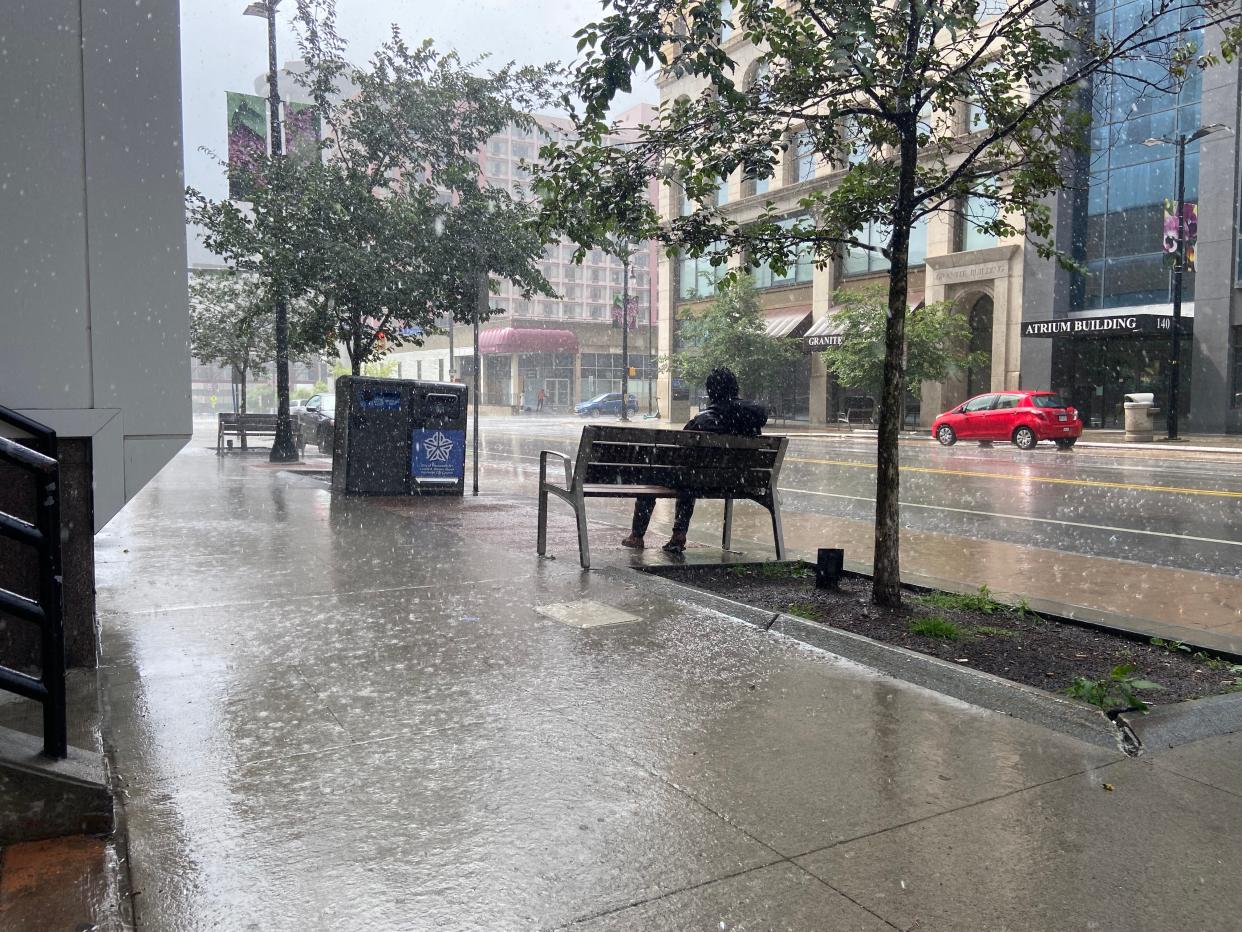
On a mid-March afternoon, you can hear every raindrop falling in downtown Rochester. The city's center is nearly barren.
Marco Murca, a 26-year-old part-owner of Peach Blossom, a mom-and-pop Mexican eatery near the corner of State and Main, says the lack of foot traffic is bad for business.
Murca heard from other small business owners in the area that a Business Improvement District was supposed to offer a lifeline by enriching the area. However, the services might have come with a cost — higher rent.
Peach Blossom has a specific budget, and a rent hike would change everything.
"There are times when we are living paycheck to paycheck," he said. Then he went back to preparing a crunchy chicken quesadilla.
If Murca had to pay more, he would want to see the money in action, for example, an extra layer of security. Peach Blossom dealt with several break-ins and incidents that made the business question whether it should stay downtown.
Next door, James Frutiger, part owner of Squatcho's, a vegan pizza joint, heard a BID could fix that, too. He wanted to know how. Besides rumors and gossip, Frutiger didn't know much about BID. The message had been lost in translation somewhere between his pizzeria and the decision-makers at City Hall.
On the five-minute walk from Squatcho's to City Hall, you'll see many storefronts that could use more foot traffic. One of those business, UU ART XXX, had a sign in the window that says: NO BID - The BID is bad for democracy.
The acronym had begun to attain a boogeyman-like aura.
A woman held the same sign on the Church Street steps of City Hall.
A speak-to-city council session was happening that evening, and 150 people had signed up to speak. Many of them gathered before the meeting to question their local government on housing, their support in the Israel/Hamas war and BID, which some members of City Hall seemed ready to vote for by the end of the year.
Kelly Cheatle, an organizer for the BID Education Committee, a community group that opposed the BID, explained that the issues are tethered. "No one is free until we're all free," she said into a megaphone. "City Council holds our power to stop the BID."
Four of the nine councilmembers stood in solidarity with Cheatle and others who gathered that night. The speak-to-council session lasted until midnight.
One week later, the effort to establish a Business Improvement District died. But why?
How did the plan backed by the most influential people in the city fail before a vote?
Supporters explained how extensive the BID proposal outreach was in the district. Bob Duffy, president and CEO of the Greater Rochester Chamber of Commerce, said several BID issues arose that he believed were inaccurate. "We're in a political environment that can be somewhat fractious and it was clear that there would not be a majority of votes on city council to approve the bid," he said.
Cheatle said she started to feel like they really had a chance at killing the BID effort last summer, after city leaders ditched a downtown ambassador program loosely tied to BID, because of community opposition.
In January, she said, speak-to-council sessions started to morph into an opportunity for different community groups to learn from one another. There were people there protesting a war in Gaza or trying to get answers about ballooning property assessments. All of them felt unheard. They realized that if they stood together, their voices would be louder.
“There was a shift in power,” she said.
But Cheatle never thought the fight against BID would end so soon. She was still planning — a meeting with councilmembers on Monday, a signature drive throughout the spring — still organizing, right up until an email hit her inbox Thursday afternoon: No more BID.
'A steward of inclusive thriving places'
During the summer of 2022, Mayor Malik Evans presented Introductory 255 to the city council.
The measure would permit the Rochester Downtown Development Corporation to develop a "district plan" for a proposed Business Improvement District in downtown Rochester.
At the time, RDDC President and CEO Galin Brooks said a BID would "build on pre-existing energy and enthusiasm for downtown and be a steward of inclusive thriving places."
The ROC the Riverway Phase 1 Vision Plan suggested a group to manage and care for public areas downtown and along the river. The City of Rochester, Empire State Development and others investigated how this could work. After studying various options and other municipalities, they decided to create the Rochester Downtown Partnership, which would eventually implement a business improvement district.
Introductory 255 described BID as a geographically defined special assessment district where local stakeholders oversee and fund their district's maintenance, improvement and promotion.
A potential BID would provide enhanced services that complement, not replace, existing municipal services.
These services could include but are not limited to, litter removal, sidewalk cleaning, snow and ice control, beautification, events, ambassadorial services, and more.
The narrative was that downtown Rochester was not safe, clean, or welcoming, and property owners in the district could pay a special tax in exchange for services that could remedy those issues.
City council voted 6-3 in favor of the measure.
Councilmember Willie Lightfoot was one of the six and said in 2022 that he was open to the possibility that a BID could help revitalize downtown.
Part of RDDC's plan involved making nice with Rochester's vibrant arts community. They approached artists like Cheatle with an idea for a project that would place art on vacant windows downtown. When the artists investigated the project's purpose, they were told it would show what a BID could do for Rochester.
"What's a BID?" Cheatle remembers asking. "It sounded like something friendly."
She was optimistic about a plan to improve downtown, especially one involving the arts, but she wanted to ensure the plans were equitable. The artists did their own research.
There are 1,200 BIDs in North America, and after examining the districts' impact on communities from Washington, D.C., to Portland, Oregon, the group of artists believed a BID in Rochester would push out renters and small businesses with rent increases passed down by landlords and property owners and displace vulnerable populations by employing ambassadors that would act as security, removing the homeless and those dealing with mental health issues.
To them, it was gentrification, 21st-century redlining and a cash grab by wealthy developers and land owners.
Cheatle said the artists "lifted the rock" on BID. It was then time to share the information with the social workers, grassroots movements and small businesses.
"How are you supposed to advocate for your best interest if you don't know something is happening?" she said.
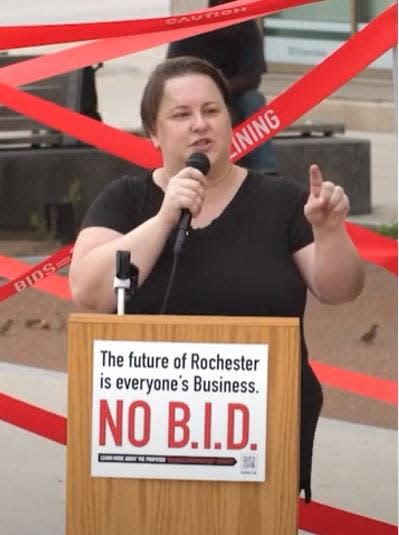
'I did want to see what they had to say'
John Gary has rented an apartment in downtown Rochester for 22 years.
From the start, Gary was a little wary of a proposed BID — but not for the same reasons most people were: the fear of rent hikes or gentrification. The initial website floating the idea for a business improvement district was full of stock photos of smiling people in fancy restaurants or next to stunning architecture. None of it was based in Rochester, Gary said. It struck him as detached and dishonest.
Still, when the Partnership for Downtown Rochester offered walking tours as an effort to engage with the community, Gary signed up. He went to three. "I can't say that I went in with an open mind, but I did want to see what they had to say," he said.
A tour guide led participants to a few different locations, stopping to ask questions along the way. Do you feel safe here? How do you like this part of town? Gary said it felt pointed and engineered to produce a negative response.
Finally came the issue of rent. Gary found it disingenuous to suggest that a BID wouldn't raise rents in the area. He would've preferred it if organizers had worked to estimate how much rent would go up. If it were just a few dollars, maybe renters would buy in for all the amenities BID promised.
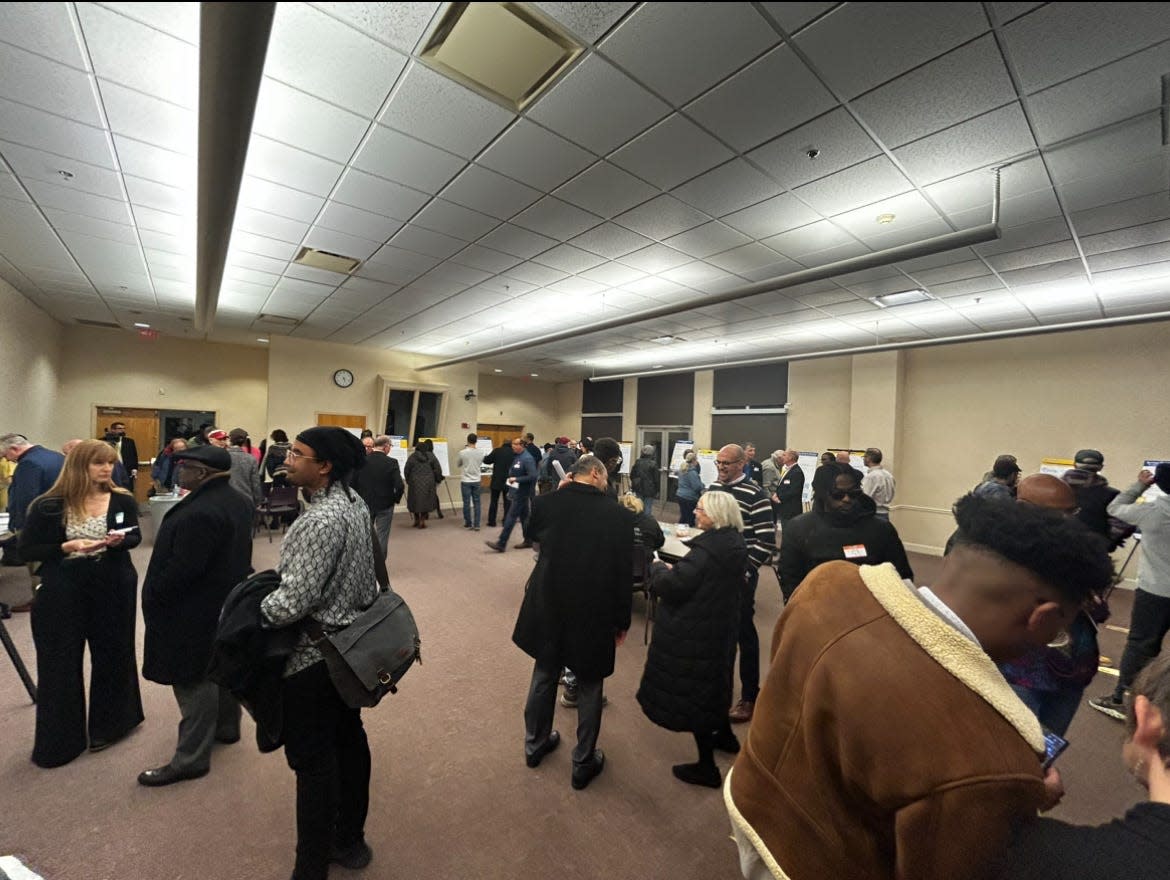
"I don't know why any landlord wouldn't pass expenses onto their tenants," he said. "It's a business, right? They're in it to make money, not to fund events or whatever."
A BID would have cost The Hochstein School. It would have imposed an additional tax on the music and dance school on North Plymouth Avenue to fund beautification efforts and community events in the downtown area.
Hilary Respass, the school's president and executive director, said it would've been worth it.
"We see it as an investment in our neighborhood, which is what we're about," she said. "We're about community, so we want to do our part."
Respass joined the BID Formation Committee, sitting in on community feedback sessions and proposal discussions. Through those, she saw visions of a vitalized downtown she wants to support: One where people see the area more as a destination. One with more weekend options for eateries and small businesses for her students and their families. One where perceptions of lack of safety are challenged and expelled.
The BID had support from several small business owners and organization heads, such as Ayette Jordan, executive director of The Little Theater, and Seanelle Hawkins, president and CEO of the Urban League of Rochester.
City councilmember Kim Smith said when BID backers initially approached her and colleagues, they said their mission was to create a thriving, welcoming, and inclusive downtown.
The possibility was exciting.
The BID Education Committee then came to Smith, a group composed of community members, small businesses and grassroots organizers; this starkly contrasted the politicians and developers pushing BID.
RDDC told Smith they would engage the community, but the wheels to implement the district were already in motion. The councilmember said that was a red flag.
The inclusivity they preached didn't match the decision-makers they had at the table, Smith said. After further examination, she decided she couldn't support BID.
Councilmembers Mary Lupien and Stanley Martin joined her.
What was missing argument for the BID?
Kate Washington was working in City Hall as the deputy commissioner of neighborhood and business development in 2014, the first time RDDC proposed a BID.
The proposal was premature back then, Washington said recently, as downtown was still in the early stages of redevelopment.
This time she thinks the proposal failed because organizers were marketing a preconceived position, rather than truly collecting input from the community, and their goals didn’t seem to go deeper than buzzwords like “cleanliness, beautification and safety.”
“Community engagement is an art and a science,” she said. “First of all, you have to understand the community and community is not a monolithic group. … Sometimes when we look at what we call community engagement and community input, we tend to focus on who people perceive as the leaders in those communities.”
In this case, she said, the community pushed back when their questions weren’t answered. And though BID organizers thought they had the support of influential politicians and business stakeholders, that commitment couldn’t last once voters started making noise.

BID was pushing ahead. Until it wasn't.
Plans for BID persisted despite growing community opposition.
RDDC drafted a district plan and hosted pop-up events to gather community feedback, answer questions and dispel what they saw as misinformation. Just because a BID was detrimental in one city didn't mean it would be in Rochester. Galin Brooks and RDDC wanted to make sure of that.
At the same time, the BID Education Committee began conducting its own public relations, hosting information sessions and movie nights, including the screening of "Jackson Heights," a documentary showing a Queens, New York, community that successfully stopped a business improvement district from coming to their neighborhood.
Eventually, more than 33 storefront businesses wrote an open letter to the Rochester city council, urging them to halt the BID.
Councilmember Willie Lightfoot read that open letter at a city council meeting in late February, almost two years after he voted for RDDC to establish their district plan for BID.
Lightfoot owns a barbershop on Jefferson Avenue; he said as a small business owner, it was necessary that mom-and-pop shops felt included in the plans for BID. From his perspective, they weren't.
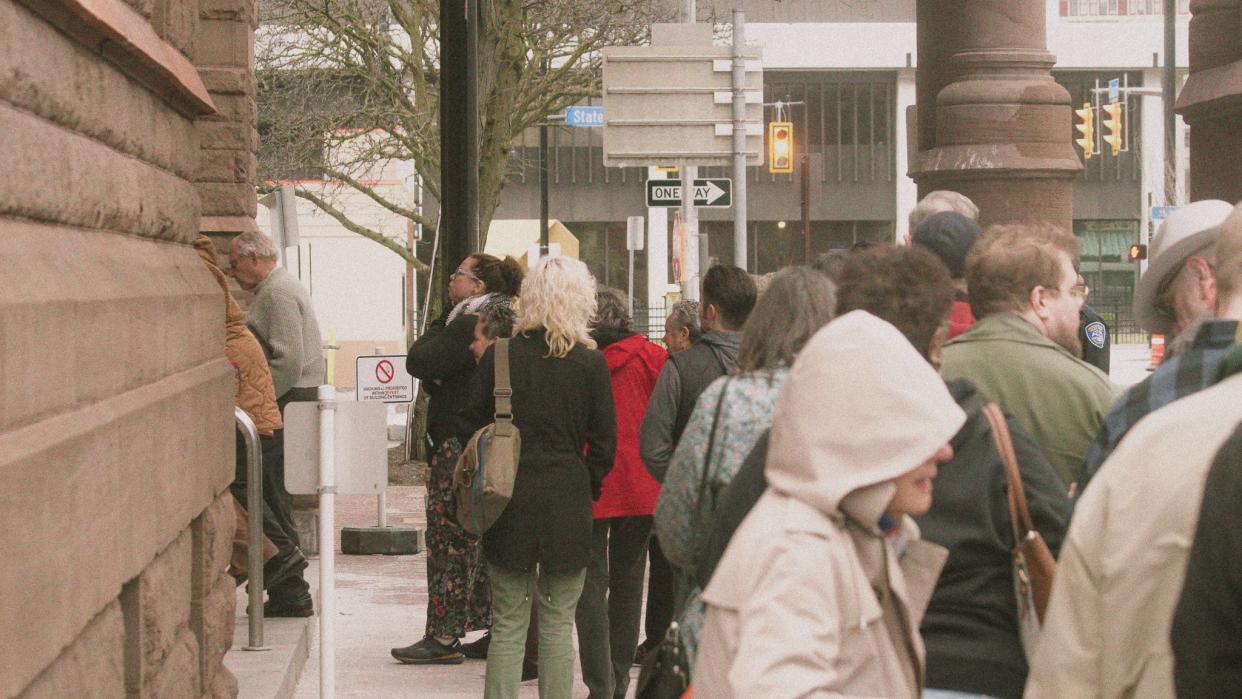
"We're elected by the people, not by big business and special interest," Lightfoot said.
The councilman's thoughts on BID had evolved. At the March 14 council speak-to session, Lightfoot joined Smith, Lupien and Martin in opposing the proposed Business Improvement District.
"My final decision was based on the people who would be most affected by it, and that's the businesses."
'A testament to people organizing'
In a statement Thursday, RDDC and PDR announced they were abandoning the BID effort because of a lack of "political will."
Cheatle says the will of the people forced the decision.
"The work the community has put in to make sure that we all know what's going on so we can advocate for our best interests is huge," she said. "That's the victory right there."
Councilmember Stanley Martin agreed. "It's a testament to people organizing and building power," Martin said. "Council has to respond to community pushback because they are elected by the community."
The BID only needed five votes to pass.
Martin, Smith, Lupien and Lightfoot were no's. The remaining five council votes remained up in the air, but a meeting loomed between council and the BID Education Committee that could have swayed a fifth member to the opposition.
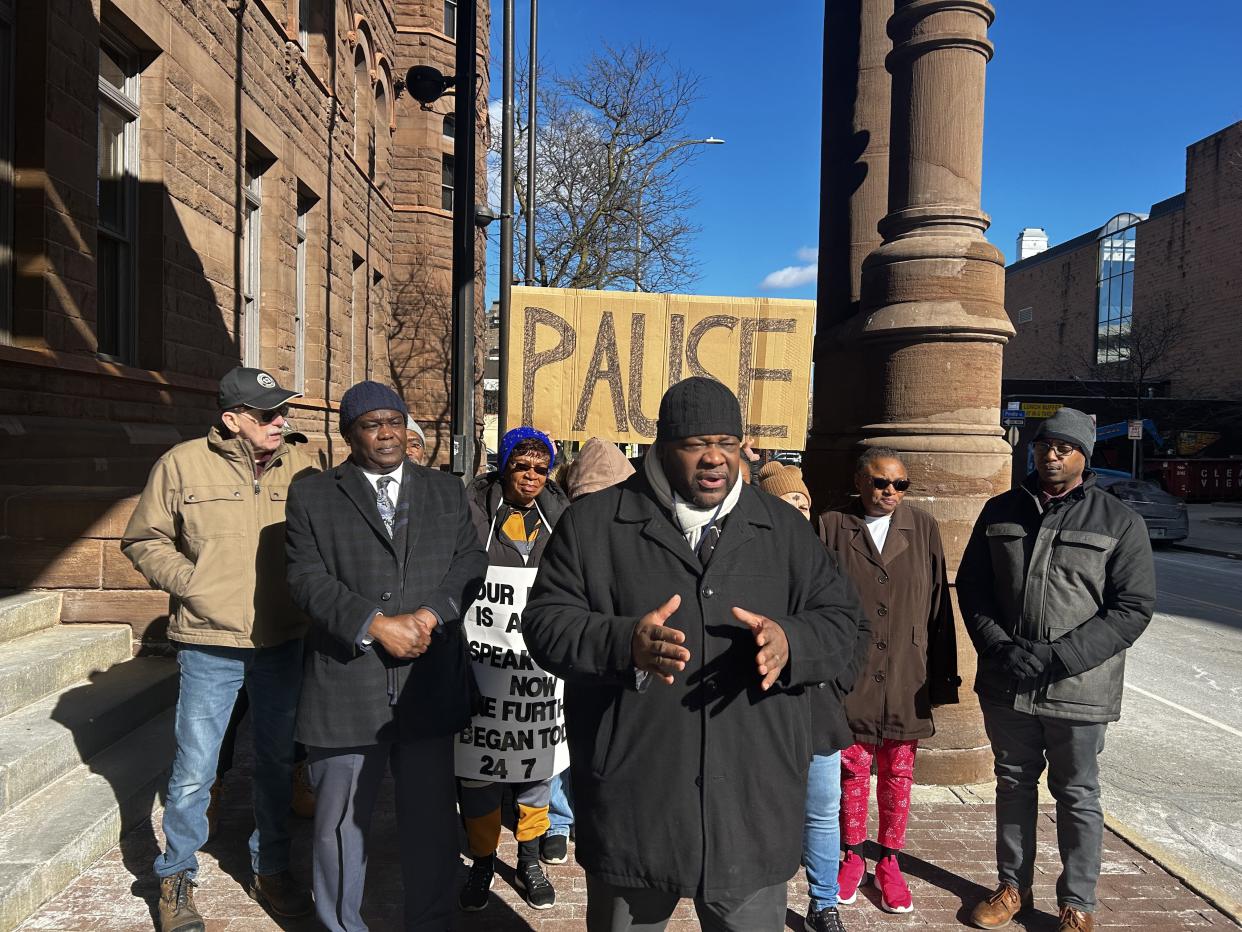
Even if it didn't, what would happen next year when a BID budget again required council approval? Five of the nine council seats are up for reelection in 2025. Without a more decisive majority of backers, any shift in the legislative body could prove dire for the BID — and opponents at this month's record-turnout speak-to-council session promised to vote out councilmembers who weren't listening to their concerns.
"It wasn't simply, how do we stand this up?" PDR Chair Joe Stefko said Friday. "But really, how do we stand this up for long-term success and benefit for all of downtown? Having four councilmembers come out against the concept prompted us to take stock of the realities on the ground."
Good Read: Rochester lost a gem when this friendly, neighborhood Italian restaurant closed
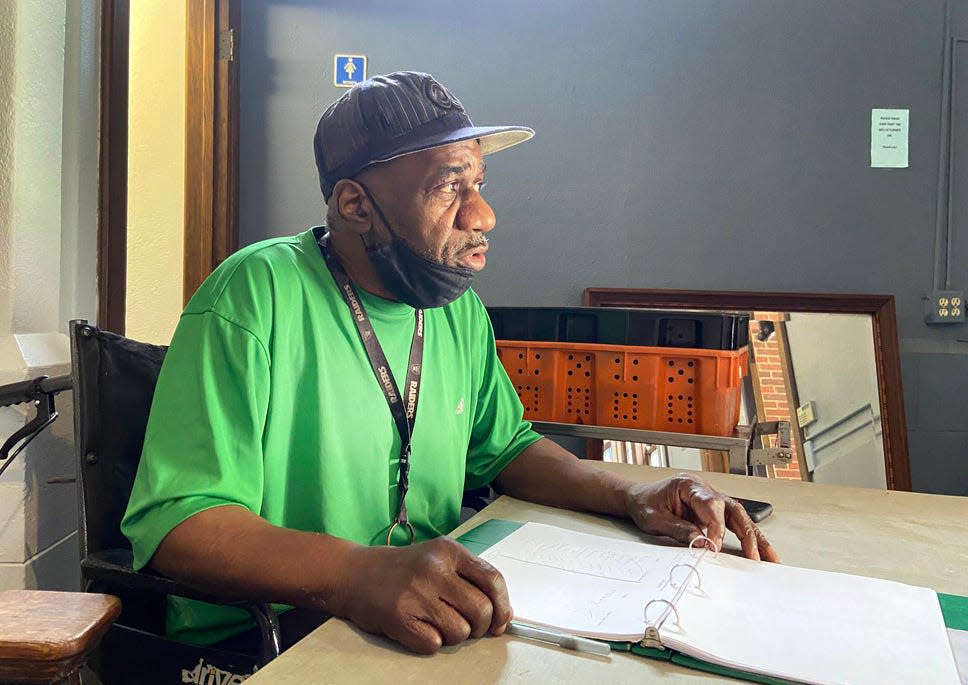
Their efforts over the last year and a half weren't all futile, though.
Brooks said more than 40 outreach events helped the two organizations better understand what people want from their downtown area.
She said the groups will return to private fundraising efforts to meet some of those goals, focusing on events, supporting small businesses and addressing livability. However, each of those things comes at a cost, and Stefko noted that relying on voluntary contributions means those projects will likely have to be scaled down and lack the sustainability a BID would have offered.
"But it represents progress, and that's really what our downtown needs and deserves at this point, and that's why we're eager to pursue that path," he said.
Bob Duffy believes the shareholders behind the BID effort are in a good place with plans to move forward with a new solution.
"I was at a meeting yesterday, listening," he said. "And to me, the atmosphere is very positive. There's no anger, there's no finger-pointing."
John Gary, the downtown renter, didn't jump for joy when he heard that the BID effort had ended because "the status quo isn't all that wonderful."
"I don't feel like it's going to prevent people from doing things to revitalize downtown. We don't need a new bureaucracy to manage revitalization. People can make individual, targeted efforts, and if they want to spend money to do that sort of thing, then so be it."
— Robert Bell is a multimedia journalist and reporter at The Democrat & Chronicle. He was born in Rochester, grew up in Philadelphia and studied film in Los Angeles. Follow him at @byrobbell on X and @byrobbell on IG. Contact him at rlbell@gannett.com.
— Kayla Canne reports on community justice and safety efforts for the Democrat and Chronicle. Follow her on Twitter @kaylacanne and @bykaylacanne on Instagram. Get in touch at kcanne@gannett.com.
— Steve Howe covers weather, climate and lake issues for the Democrat and Chronicle and he grew up drinking well water. Have any insight into Rochester weather? Share with him at showe@gannett.com.
This article originally appeared on Rochester Democrat and Chronicle: Rochester NY downtown plan collapses: How residents toppled BID
